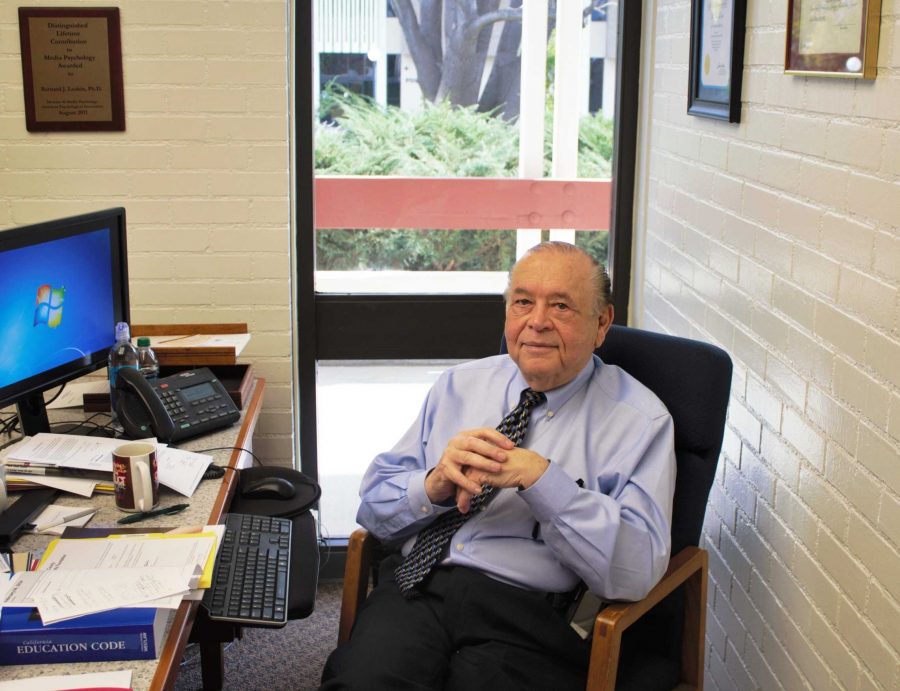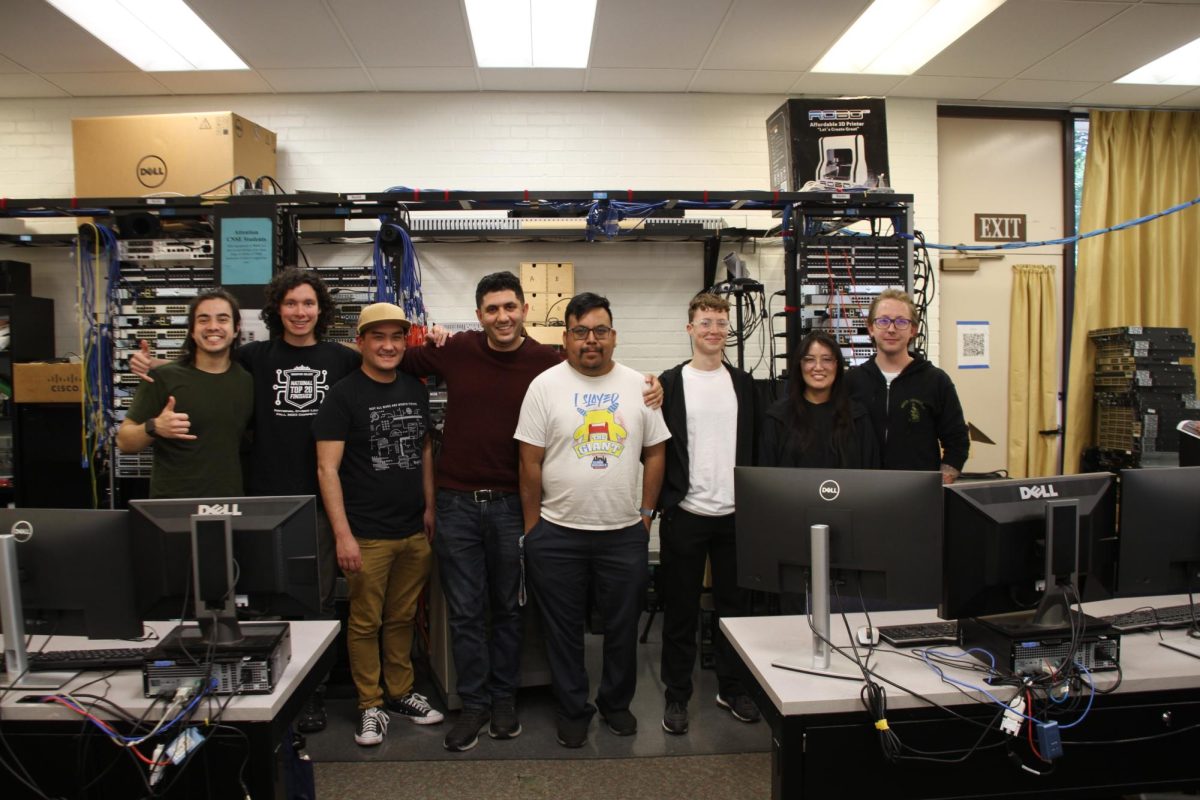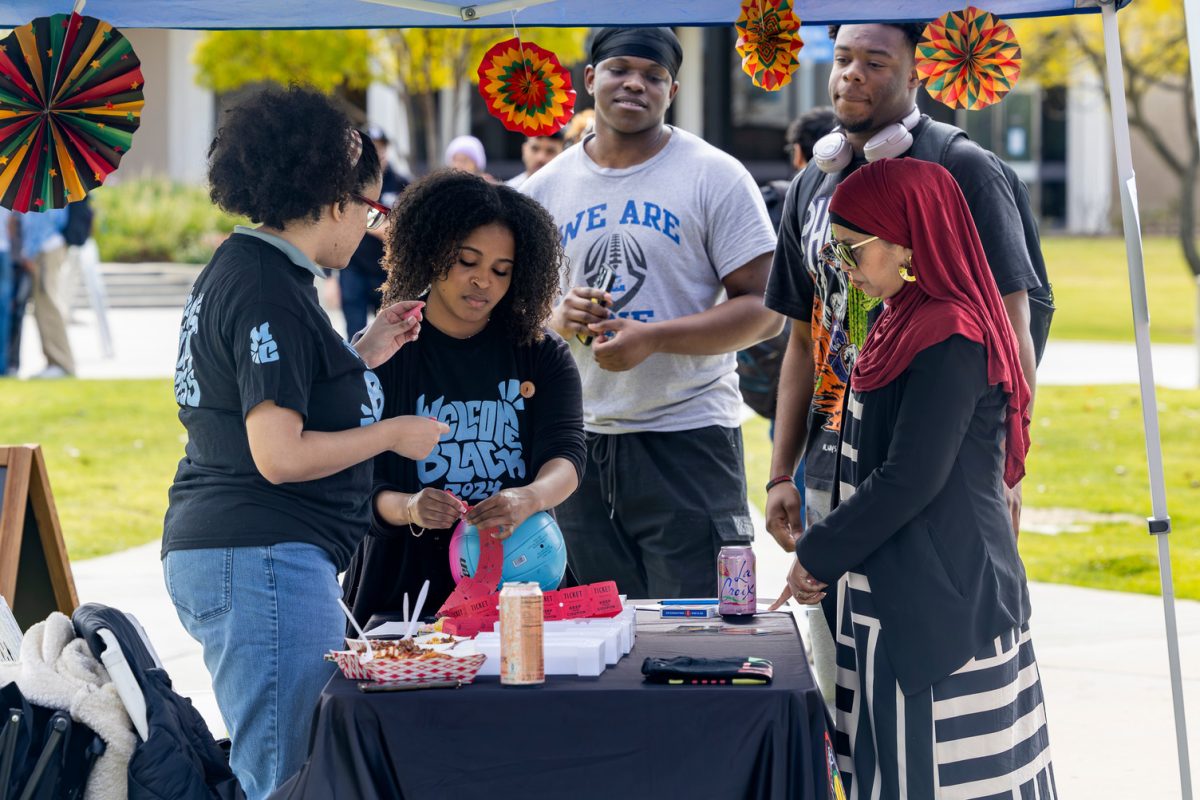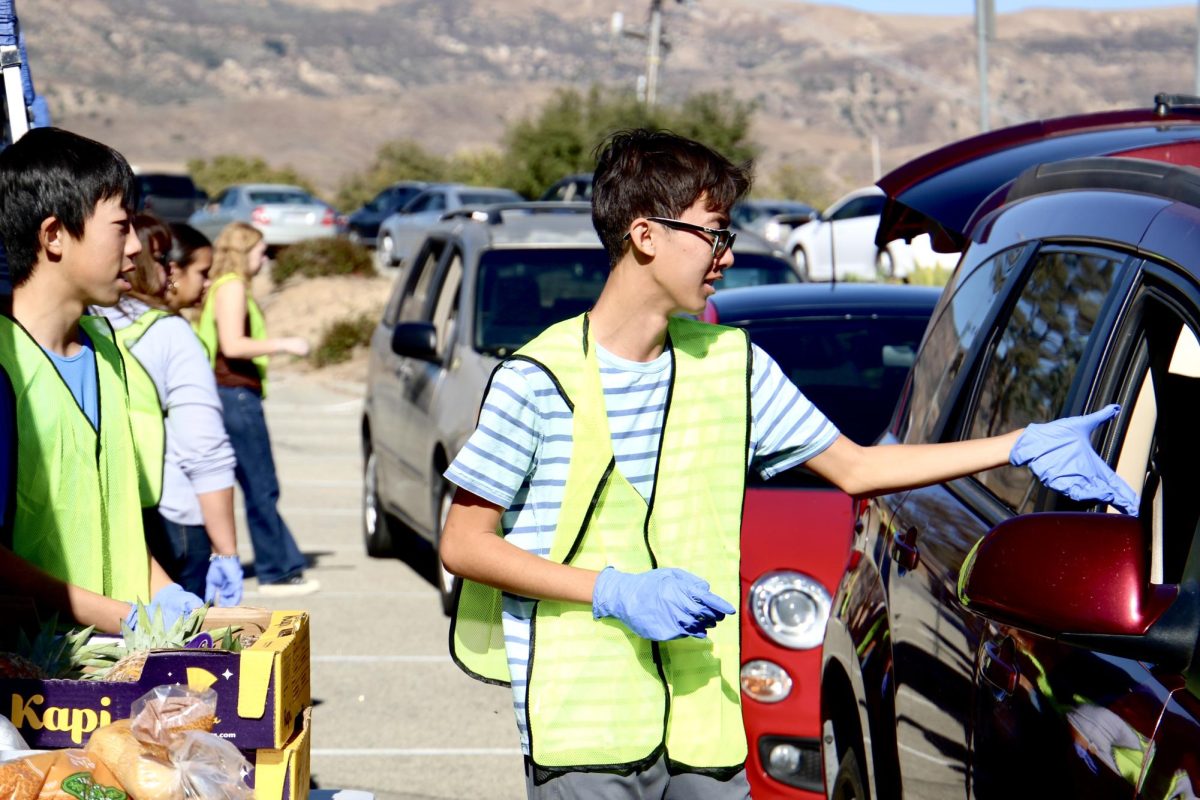For those who missed the ‘Is Social Media Antisocial’ lecture on Tuesday by Moorpark College’s Interim President Dr. Bernard Luskin, he offered an analysis on social media and how much we rely on our daily devices to get us from point A to point B. This is something that college students today are all too familiar with.
According to Luskin, the way our minds adapt to these technological changes by communicating to our family and friends via phone, text message, FaceTime, etc. is unbelievable.
There were over 50 people in the audience that attended this event to listen to Luskin’s inspirational words.
This presentation was among the few this year to organize under the Year of Science and Technology, the campus wide effort to explore this courageous theme. Social media is just the beginning of the technology and networking world we are expanding into. Unsure of exactly where the next decades will take us, one thing is for sure: the use of digital devices will be there, and be more advanced.
“This is the first decade of the 21st century, and we are all pioneers in our new global world of social media,” said Luskin.
Luskin explained that, in this generational age, children born in the year 2000 and after are the “digital natives” – those who have grown up around media and technology since they were born. Those born before the year 2000 are “digital immigrants,” who have to change their way of life to adapt to this new technological state of being.
Luskin’s inspiration for this lecture began when Michael Seabaugh, a writer from 805 Magazine, called him personally and asked for an interview on social media. Seabaugh then published an article about the interview.
A few faculty members, including Svetlana Kasalovic, read the article and encouraged Luskin to give a public lecture at Moorpark College, just like he did at California Lutheran University.
Luskin’s lecture on social media, and how it affects the present and future lives of all of us, is bigger than we can even imagine. Technology is a part of our everyday lives. From the moment we wake up and check our phones for new messages or missed calls, to last minute emails to coworkers before the day ends, we are using the digital devices our society created to make our days more efficient and productive.
We are constantly engrossed in this civilization where we would not know what to do without electronics, unless the power was out, and we find other means to entertain ourselves.
This is just the beginning, and it is never going to pass. Luskin explains that this revolutionary time is all about future networking and robotics – those who can see this coming are pundits.
“Simple times are gone forever,” said Luskin. “Our world will never be the same again.”
Luskin is involved in a variety of organizations, and his passion for pursuing dreams has influenced many students, faculty, and individuals around the world. He believes that with one act of generosity, your whole view on the future can change. It’s not about texting, Facebook, or twitter changing the way we communicate; it’s the fact that we’re still communicating.
“In life, we need to remind ourselves what needs to change and what needs to remain the same,” said Luskin.
Now is the time to step into the wonderful world of the digital age, so take a leap, and explore the newest technology; it could just be in the palm of your hands.







